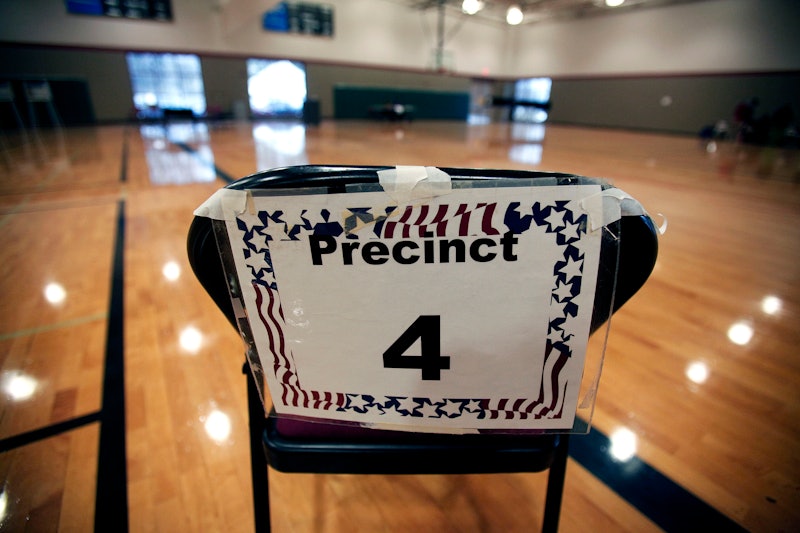News
Why Are The Idaho Caucuses On Different Days?
Donald Trump is still riding the great wave to the Republican National Convention, Sen. Bernie Sanders is refusing to give up his revolution, and the 2016 primaries and caucuses carry on. On March 8, Idaho held only its Republican caucus; the state's Democratic caucus is scheduled for Tuesday, March 22. Why are the Idaho caucuses on different days? It might have to do with the state's loose rules about its caucus voting.
The Idaho caucus is categorized as an open caucus, which means anyone can join in. Voters don't need to be affiliated with the political party, and they don't even have to be at least 18 years of age (but they will need to be 18 years old by November). There's one caveat, however: Idaho residents who voted in the Republican caucus can't vote again in the Democratic caucus. That one rule is why the Republican and Democratic caucuses are so spaced out.
Sen. Ted Cruz of Texas won the Idaho caucus on March 8, winning 45 percent of the vote and 20 delegates in all. Trump came in second, clinching 12 delegates. Sen. Marco Rubio of Florida, who recently dropped out of the race, and Ohio Gov. John Kasich failed to win any delegates in Idaho.
Sanders and Hillary Clinton, the current front-runner for the Democratic presidential ticket, are not the only two candidates facing off in the Idaho Democratic caucus on Tuesday. In addition to the two Democratic heavyweights, the ballot includes Rocky De La Fuente, a businessman from California, so voters can also choose an unaffiliated option.
The race in Idaho will be a close one, with Sanders in a slight lead, according to Real Clear Politics. The most recent poll from Idaho, conducted by Idaho Politics, had Sanders polling at 47 percent, with Clinton just two points behind. Idaho is not a winner-take-all state, so there's still room for Clinton. Overall, Idaho has 27 delegates to split among the candidates. According to Huffington Post Politics, Clinton already has one delegate accounted for in Idaho.
Several other states in the western part of the United States will be holding primaries on Tuesday, March 22. Arizona and Utah will be holding both their Republican and Democratic primaries, with Arizona bearing the largest number of delegates for both the Democrats and the Republicans, at 85 delegates and 58 delegates, respectively. Meanwhile, American Samoa will be holding only its Republican primary on Tuesday.
